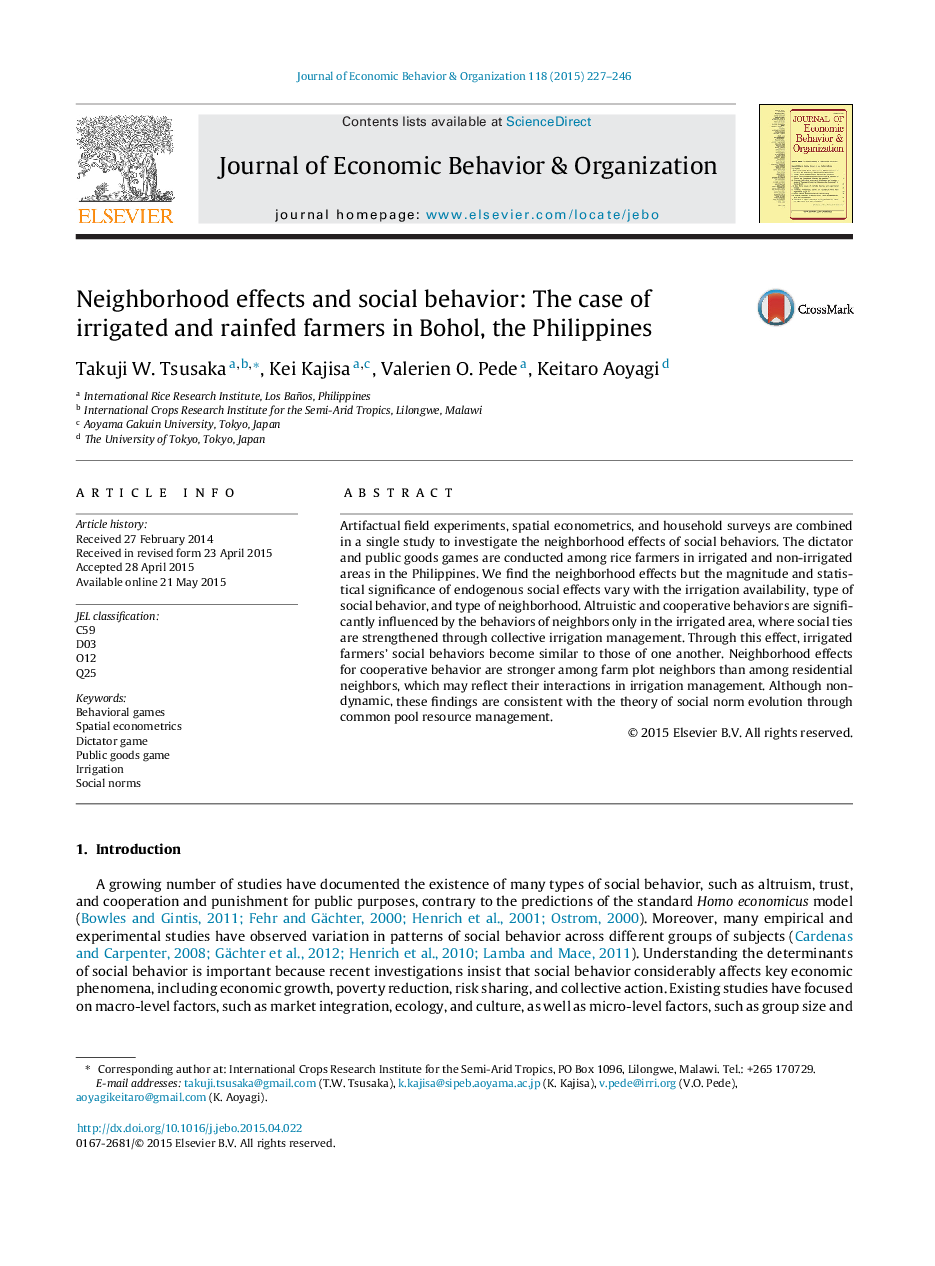| Article ID | Journal | Published Year | Pages | File Type |
|---|---|---|---|---|
| 7242994 | Journal of Economic Behavior & Organization | 2015 | 20 Pages |
Abstract
Artifactual field experiments, spatial econometrics, and household surveys are combined in a single study to investigate the neighborhood effects of social behaviors. The dictator and public goods games are conducted among rice farmers in irrigated and non-irrigated areas in the Philippines. We find the neighborhood effects but the magnitude and statistical significance of endogenous social effects vary with the irrigation availability, type of social behavior, and type of neighborhood. Altruistic and cooperative behaviors are significantly influenced by the behaviors of neighbors only in the irrigated area, where social ties are strengthened through collective irrigation management. Through this effect, irrigated farmers' social behaviors become similar to those of one another. Neighborhood effects for cooperative behavior are stronger among farm plot neighbors than among residential neighbors, which may reflect their interactions in irrigation management. Although non-dynamic, these findings are consistent with the theory of social norm evolution through common pool resource management.
Related Topics
Social Sciences and Humanities
Economics, Econometrics and Finance
Economics and Econometrics
Authors
Takuji W. Tsusaka, Kei Kajisa, Valerien O. Pede, Keitaro Aoyagi,
